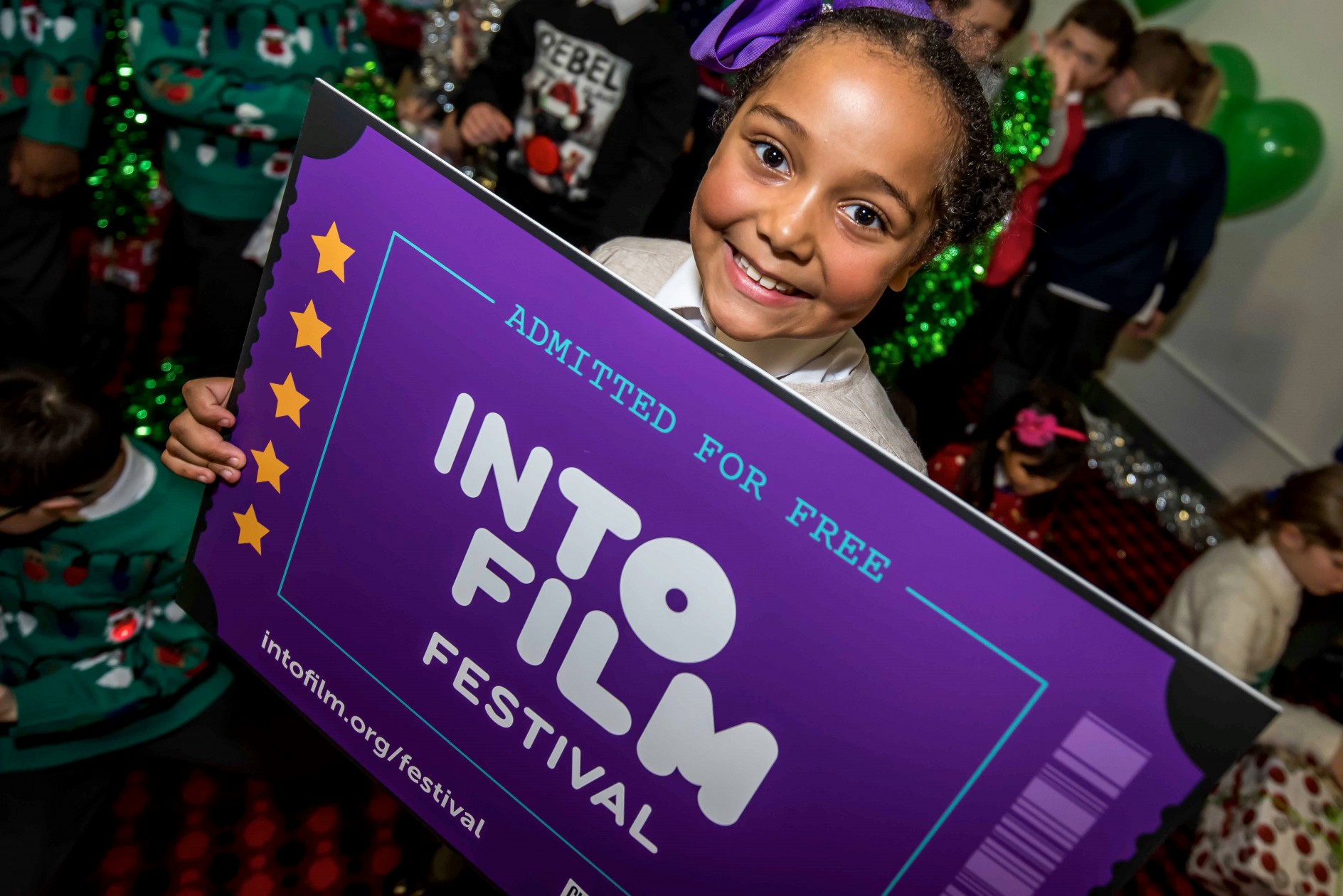Now in its 7th year, the Into Film Festival returns this autumn bigger and bolder than ever, with free screenings and special events.
UK schools are once again being offered the opportunity to attend free cinema trips and access free resources through the Into Film Festival. Returning for its 7th year from November 6th to 22nd, the Festival is the world’s largest free film festival and its many themes and topics can be utilised by educators across the curriculum.
With 3000 screenings and 200 special events, this year’s eclectic programme offers something for 5 to 19-year-olds from all backgrounds and corners of the UK. The annual celebration of film and education is hosted by Into Film who engage with over half of UK schools and aim to place film at the heart of young people’s social, cultural and educational development. It is made possible by funding from Cinema First, the BFI and a wide collaboration with UK cinema industry partners.
The Festival’s meticulously curated programme spans a wide variety of diverse stories, topics and genres and provides access to speakers, special events, review writing and careers activity. A huge range of films are included, from special previews to animations and documentaries, and are mapped against the curricula of all four nations to support subjects such as English, modern foreign languages (MFL), geography, history, PSHE, politics and citizenship.
The Festival will launch this year with an ambitious, environmentally themed event that spans the UK. Pupil premieres of the new documentary 2040, which has been cited as the first film aimed at young audiences to offer a hopeful response to youth ‘eco-anxiety’, will take place across 40 locations with a Q&A with director Damon Gameau live streamed to every venue. Other pupil premieres include Biggest Little Farm, Welsh language film Deian a loli, Abominable and Supa Modo, and further highlights include On the Basis of Sex, Wizard of Oz, Apollo 11, Rocketman, A Deal with the Universe and Horrible Histories: The Movie – Rotten Romans.
Stand-out special events include workshops with Access VFX, environmental production company Green Screen and stop-motion animator Tim Allen; Q&As with Diego Maradona Director Asif Kapadia, Dirty God lead actor Vicky Knight and the filmmakers of Academy Award nominated short Black Sheep around the issue of knife crime; and other collaborations with Greenpeace, UNICEF, Stonewall, Guide Dogs UK, Oxfam and many more.
This year’s Festival is compromised of seven strands that can help educators navigate the packed schedule. Mental Wellbeing & Identity will open up discussion around young people, identity, and mental wellbeing. Language & Creativity centres on how language impacts almost every moment of our lives. Alongside films in English, this strand includes titles in modern foreign and indigenous languages, the latter of which is being celebrated all year by the United Nations.
The Natural World strand aims to enlighten us about those creatures and environments that we share the world with, and as the global climate crisis becomes increasingly urgent, this has never been more important. Similarly, Exploring History is essential in assessing our increasingly turbulent and uncertain times with knowledge, understanding and perspective.
Debate explores how film can be an extraordinary tool for developing our understanding the complexities of issues and individuals. The strand’s titles inspire empathy and provoke conversation on important topics, from economic inequality and contemporary race relations to the increasing role of artificial intelligence in our lives. Fantasy & Adventure is based on the simple premise that of all the pleasures that film provides us, few are as pure as the capacity it offers for escapism.
The Rebellion strand encompasses a variety of different stories from coming-of-age tales and quiet dignified protests of unsung heroes, to vibrant portraits of true trailblazers. Finally, Musicals complements the BFI’s autumn blockbuster season and celebrates one of the most enduring and loved genres in all of cinema. The strand has been curated with the help and guidance of Into Film’s Youth Advisory Council, and the BFI’s Film Audience Network programming groups.
Festival guides by age-group and dedicated teaching resources linked to this year’s programme will be on offer to encourage exploration of the films and themes within them prior to and after screenings.
As part of the commitment to ensuring the Festival is available to all young people regardless of background, ability or location, over half the screenings offer audio-description and subtitling. This year also yet again sees an increase in the number of autism-friendly screenings.
The Into Film Festival runs from 6-22 November 2019 and all tickets are completely free. Bookings opened on Wednesday, September 4th for those with an Into Film Club, and on September 5th for all other educators. For more information visit www.intofilm.org/iff19bookings. Events fill up very fast so for a greater chance of getting the tickets you want, consider signing up for a free Into Film Club – www.intofilm.org/clubs.



